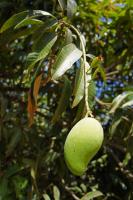Introduction
New Jersey is known for its beautiful landscapes, and one of the best ways to add to the beauty of the state is by planting trees. However, not all trees are suitable for the state's climate and landscapes. This article will help you navigate the process of choosing the right tree to plant in New Jersey.
Native Trees vs. Non-Native Trees
One of the first decisions to make when selecting a tree for planting in New Jersey is whether to choose a native or non-native species. Native trees have evolved over time to adapt to the state's climate and soil conditions, and they tend to support the local ecosystem by providing food and habitat for local wildlife. Some popular native trees in New Jersey include Red Maple, White Oak, and American Beech.
Non-native trees, on the other hand, can be more difficult to maintain and may not provide the same level of support to local wildlife. However, they can also add visual interest and diversity to landscapes. Some non-native trees that can thrive in New Jersey include the Japanese Maple, Ginkgo, and Norway Spruce.
Climate and Site Conditions
Another important consideration when selecting a tree for planting in New Jersey is the climate and site conditions. The state experiences a range of weather conditions, from hot summers to cold winters, and trees need to be able to withstand these fluctuations. Additionally, soil conditions can vary widely throughout the state, and some trees may not thrive in certain types of soil.
It's important to do some research and choose a tree that is well-suited for your specific location. For example, if you live in an area with poor soil drainage, you may want to choose a tree that can tolerate wet conditions, such as the River Birch. Alternatively, if you live in a coastal area that is prone to wind damage, you may want to choose a tree that is more wind-resistant, such as the Redbud.
Maintenance and Care
Once you've selected a tree for planting in New Jersey, it's important to take the proper steps to ensure its long-term health and survival. This may include regular watering and fertilization, pruning to remove dead or damaged branches, and protecting the tree from pests and disease.
Some trees require less maintenance than others, so it's important to choose a species that you are willing and able to care for. For example, if you have limited time for tree maintenance, you may want to choose a low-maintenance species such as the Japanese Zelkova.
Conclusion
Choosing the right tree to plant in New Jersey can be a rewarding experience that adds beauty and value to your landscape. By considering factors such as climate and site conditions, as well as native vs. non-native species and maintenance requirements, you can help ensure the long-term health and survival of your tree. Whether you choose a native Red Maple or a non-native Ginkgo, planting a tree in New Jersey is a great way to make a positive impact on the environment and create a beautiful outdoor space for years to come.

 how many times do yo...
how many times do yo... how many planted tre...
how many planted tre... how many pine trees ...
how many pine trees ... how many pecan trees...
how many pecan trees... how many plants comp...
how many plants comp... how many plants can ...
how many plants can ... how many plants and ...
how many plants and ... how many pepper plan...
how many pepper plan...






























